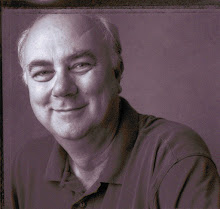Eastman #4; Before Costco; Kingsport's WWII Spy
When
Eastman was Number 4.
In
1926 the Kingsport Times surveyed the local employment scene and
published a chart listing – not in any particular order – the fledgling city’s
top industrial employers.
If you
had asked Kingsport folks in the 50s who they thought was the city’s top industry
thirty years earlier, most of them would have guessed Eastman.
But
it wasn’t.
Kingsport
Press was.
Eastman
was fourth, only a handful of employees ahead of Kingsport Hosiery Mill.
The newspaper
estimated the local population at 12,000 with more than one-third of them
gainfully employed.
“It
is probable that there is no other city in the United States which has a larger
percentage of workers and a smaller percentage of drones.”
Before
there was Costco, there was Poston’s Grocery.
The tiny
market located at the so-called Upper Circle (now the intersection of East
Center and Memorial Blvd.) advertised in 1954 – two decades before Costco’s
first warehouse store opened in Seattle as Price Club - “Groceries by the Case”
economically priced at “25 cents per case over our wholesale cost.”
Kingsport
Woman Was Wartime Spy
Suzanne
David Hall, war bride of Kingsport soldier Larson Hall, worked for the French
Underground before meeting her future husband.
She
described the experience to Times-News Staff Writer Herman Giles in 1949:
Her time
during World War II reads like a spy story and that's what it is. Mrs. Hall was
a member of the French underground, and if the Americans had not invaded
Normandy when they did, she may never have lived to tell about it.
She
was one of 140 persons in Cherbourg who worked with the French Marquis. Now she
is one of the four members of that group still alive.
The
Germans were taking the men of France and shipping them to Germany as forced
laborers. Before they went, they were examined by doctors to determine whether
or not they were physically fit for the job. But the doctor in Cherbourg was
not as trustworthy as the Germans thought.
He
sent out false identification papers, changed reports of other physicians in
other towns. How he got these papers is not known, but he sent them out of his
office by Mrs. Hall. She carried them sewed in her coat lining, sometimes in a
hollow slot carved in the heel of her slippers. One wrong move could mean
death, and one day she made that move.
She
was on a train, and one of the papers she was carrying fell to the aisle. A
German guard found it, and she was taken into custody. Despite her denial of
any knowledge as to where the paper came from, she was jailed for further
questioning.
The first
night she was in jail a sentry suddenly walked in, threw open the doors and set
all the prisoners free. It was unbelievable! Once free, she learned what had
caused the miracle. The Americans had landed, and the Nazis were retreating.
There was no time to worry about prisoners.
Mrs.
Hall is eligible for the Purple Heart, too. She has two pieces of shrapnel in
her body, the result of bombing raids on Cherbourg
"American
shrapnel," Mrs. Hall smiled with mock accusation toward her husband. But
she quickly explained she was only teasing "Some of the French were bitter
about those killed by the bombers, but there is always death where there is
war. Those killed were nothing compared to the many saved from certain death.
The French know that now, and they are grateful."
At
present, Mrs. Hall has no idea when she will be able to visit France again.
She's more interested in finding an outlet for the restless energy which an
adventurous life has left her, and she wants to take a job in Kingsport as soon
as she can find one.
"I
think I’d like telephone work,” she said. "I like to hear a voice by
itself, and then try to imagine what the person looks like from the sound of
it. It's an exciting game."
The next year she
was awarded the Croix de Lorraine by General Charles de Gaulle for her heroism.
She
never got that telephone work. She raised her son Larson III (Larry) and
daughter Tina in Kingsport. Her 2011 obituary listed her as a homemaker.
Suzanne
Louise David Hall became a naturalized citizen of the United States in November
1975.
The 2003
novel “For Freedom: The Story of a French Spy” by Newberry Award-winning author
Kimberly Brubaker Bradley was based on her life.












